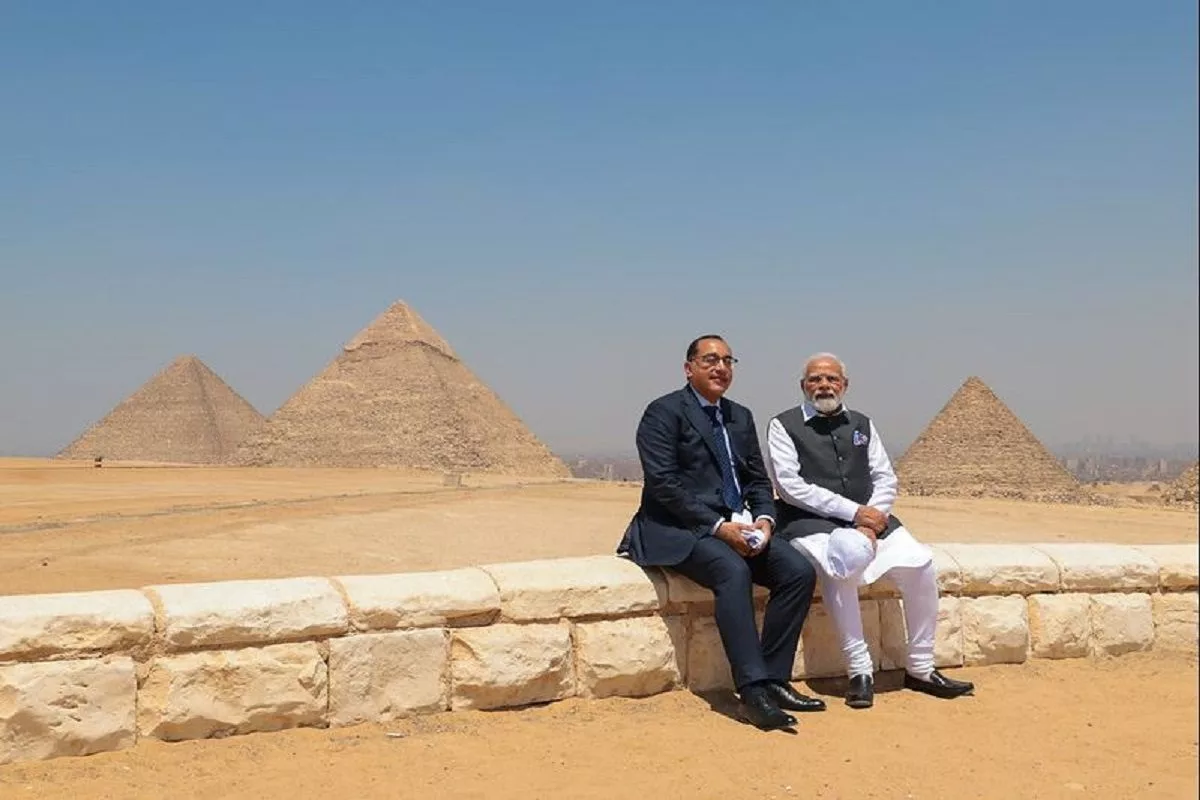
Egypt can also serve as a gateway through which India can send its goods to Africa and Europe and meet the Chinese challenge in these areas, particularly in Africa. The Middle East is becoming increasingly important for India due to its trade interests and also for the millions of Indians who work in the region and send remittances back home.
With all the expansion of India’s economic and security ties with the Middle East, however, the Indian position on Iran may differ sharply with those of the United States and Israel, Stephen Cook has pointed out. “It is unlikely that India will line up with the United States, but it is also unlikely that New Delhi will undercut Washington the way both Beijing and Moscow have done.”
Prime Minister Narendra Modi was received by the President of the Arab Republic of Egypt Abdel Fattah Al-Sisi at Al-Ittihadiya Palace on June 25. An agreement to elevate the bilateral relationship between India and Egypt to a “Strategic Partnership” was signed by the two leaders. Prime Minister Modi and President Sisi also discussed more cooperation in the areas of food and energy insecurity, climate change, and the need for the Global South to have a concerted voice. The President of Egypt also conferred on the Indian Prime Minister the ‘Order of the Nile,’ the highest civilian award of Egypt.
Besides business talks, the Indian Prime Minister also met the Grand Mufti of Egypt His Eminence Shawky Ibrahim Allam who emphasized on the strong cultural and people-to-people relations between India and Egypt and appreciated the leadership of Prime Minister Modi in fostering inclusivity and pluralism. Discussions focused on issues related t*o social and religious harmony in society. Prime Minister Modi conveyed that India would set up a Centre of Excellence in IT at Dar-al-Ifta, a centre of Islam and Islamic legal research in Egypt.
According to a Foreign Policy report, India is planning a significant connectivity project to counter the growing influence of China in the Gulf. The project aims to link New Delhi to the Middle East through a series of roads, railways and seaports. The idea for the project was formed under the I2U2 forum for economic cooperation, which includes India, Israel, the United Arab Emirates and the USA.
The project has been discussed in a meeting between the National Security Advisor of India Ajit Doval and his counterparts from the USA and the UAE, as well as Saudi Crown Prince Mohammed bin Salman.
“Nobody said it out loud, but it was about China from day one,” an Israeli official has been quoted to have said. The formation of I2U2 “is a clear recognition that the Biden administration is now actively involved in responding to China in multiple regions,” the Observer Research Foundation has noted. “New Delhi also understands that the China challenge has to be met not only to India’s north and east but also towards India’s west.” Both India and the U.S. now recognize that they need each other to meet the challenges from China which are not only military but also economic.
The assertion of Beijing that it wants to help low income countries develop with BRI assistance is a mask. According to analysts, the BRI is a Chinese investment platform that employs Chinese capital across infrastructure projects in emerging markets for geopolitical gains.
The focus of this investment strategy is now shifting to Saudi Arabia and the Middle East. China has signed comprehensive strategic partnerships with Algeria, Egypt, Iran, Saudi Arabia and the UAE and strategic partnerships with another eight states in the region.

















